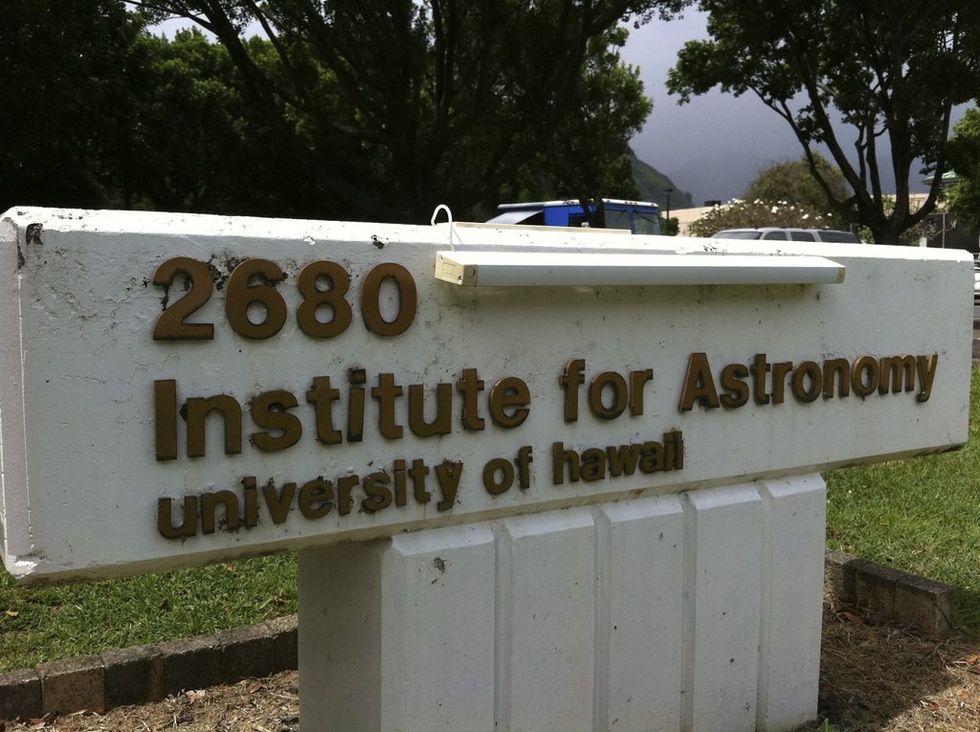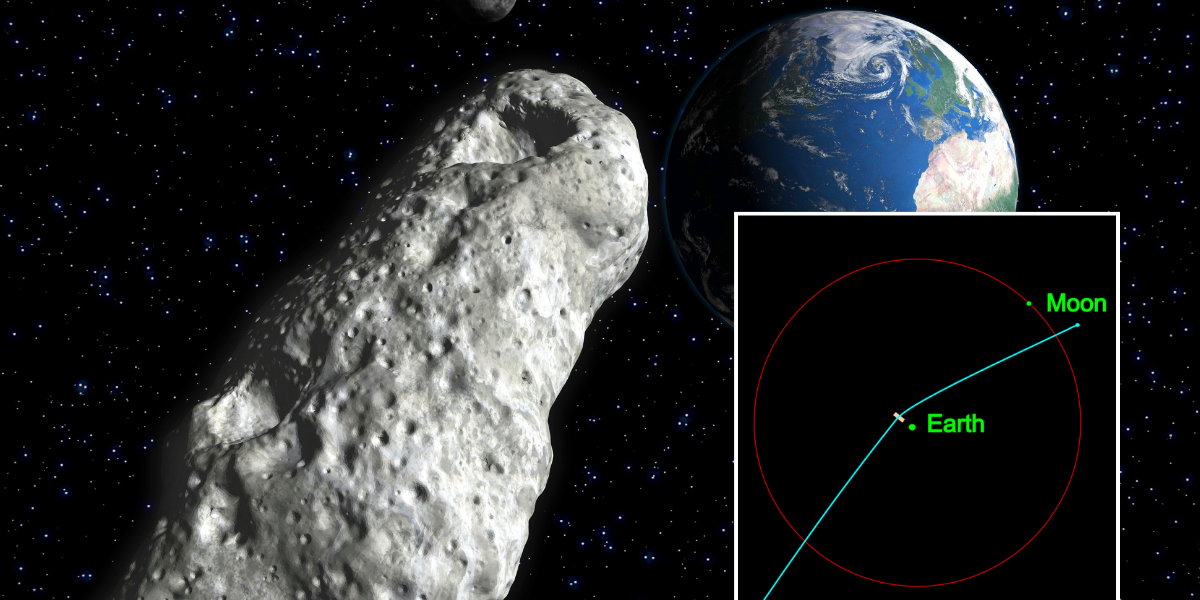Scientists have issued an update on an asteroid named after the Egyptian god of chaos which is set to pass very close to Earth.
Apophis is an 1,000-foot wide asteroid that is set to come close to the Earth in 2029 and 2068, according to researchers from the University of Hawaii’s Institute for Astronomy.
Astronomers have suggested that there is a 1 in 150,000 chance of Apophis hitting Earth in 2068.
While tracking the asteroid, scientists found it has sped up due to an orbital process called the Yarkovsky effect.
The asteroid is set to come close to the earth twice this century
WikiCommons/Getty
University of Hawaii astronomer Dr David Tholen said: “The new observations we obtained with the Subaru telescope earlier this year were good enough to reveal the Yarkovsky acceleration of Apophis.
“They show that the asteroid is drifting away from a purely gravitational orbit by about 170 meters per year, which is enough to keep the 2068 impact scenario in play. Small, but non-zero.”
He also noted that even without the acceleration, “Apophis is still a threatening object, just not in 2068.”
The Palermo Technical Impact Hazard Scale suggested that there’s a 1 in 150,000 chance of Apophis hitting Earth on April 12, 2068.
LATEST DEVELOPMENTS

The asteroid was fist spotted by the University of Hawaii in 2004
WikiCommons
Dr Tholen and his team first discovered the asteroid in 2004. Their research reveals that it is first expected to pass by the planet in 2029.
The large asteroid will come very close during its April 13, 2029 approach, instead passing between Earth and a network of communication satellites.
It is expected to be visible to the naked eye when it passes over in 2029.
While there is currently no concern the asteroid is on a collision path, the orbit has been altered by Yarkovsky effect.
The Yarkovsky effect happens when asteroids absorb sunlight as they travel through the cosmos.
Popular Mechanics writes: “In order to maintain thermal equilibrium, an asteroid will emit that solar energy as heat.
“This generates a force that causes them to speed up and, in turn, change the asteroid’s orbit.”

Dr. Thomas Hughes is a UK-based scientist and science communicator who makes complex topics accessible to readers. His articles explore breakthroughs in various scientific disciplines, from space exploration to cutting-edge research.








